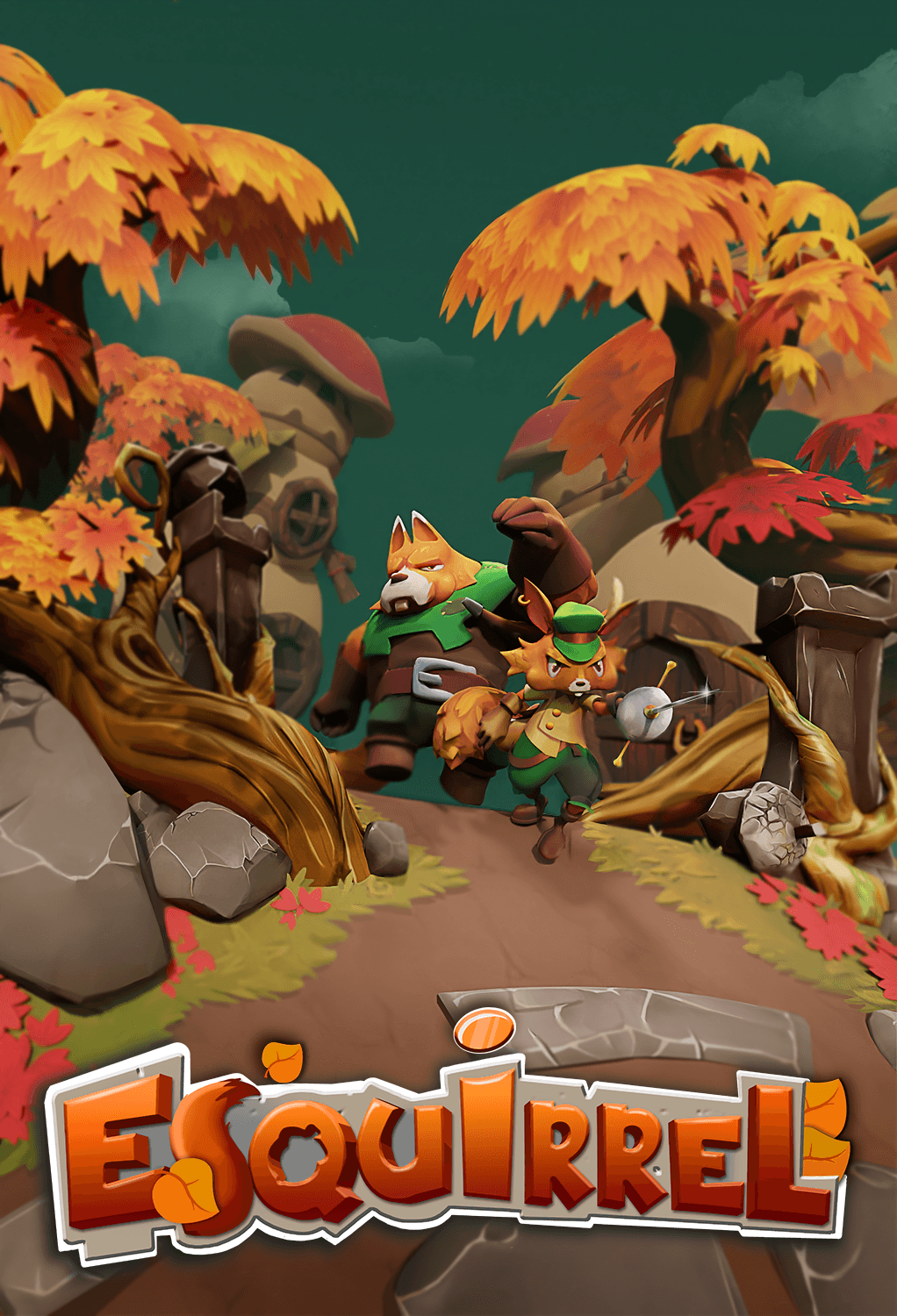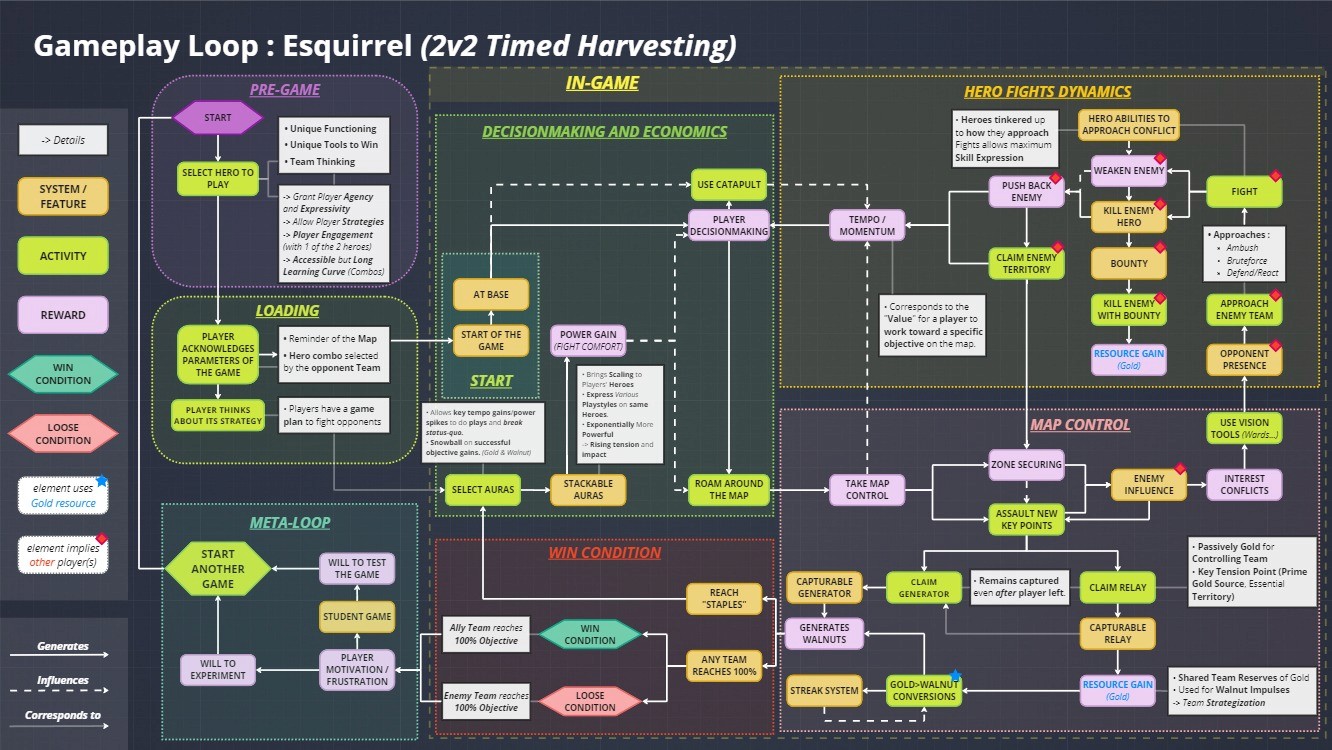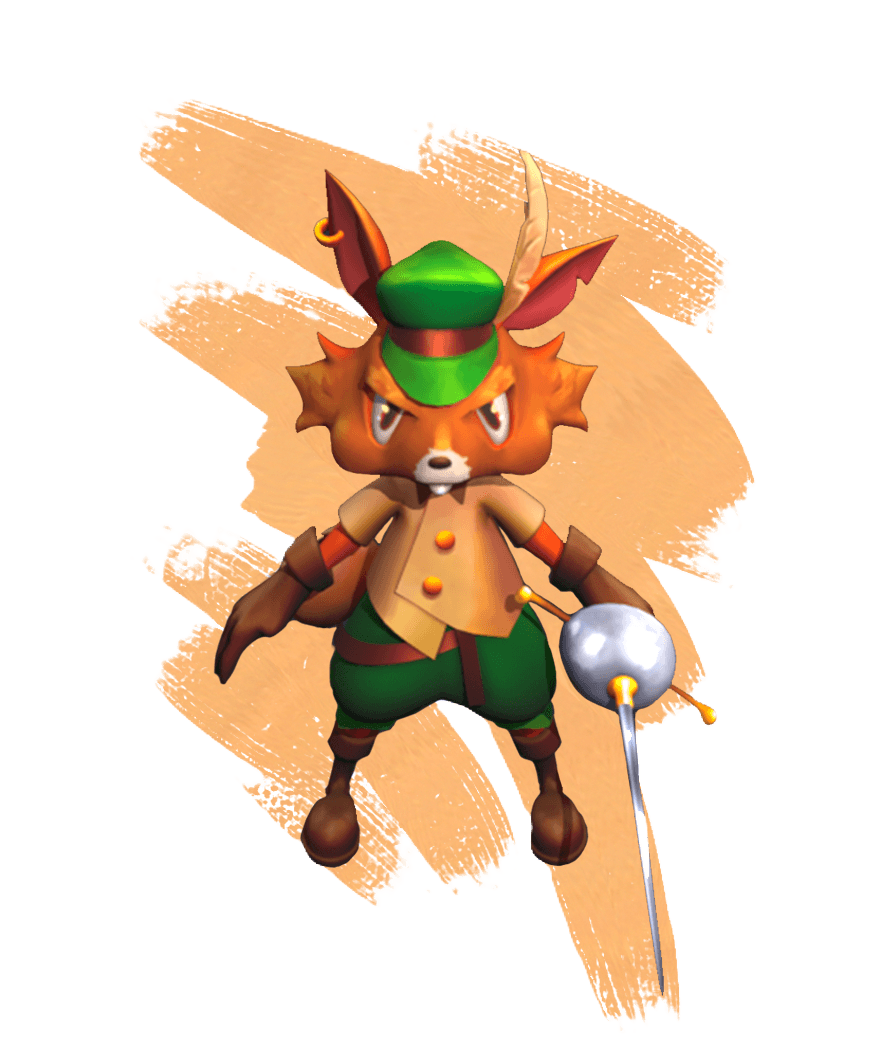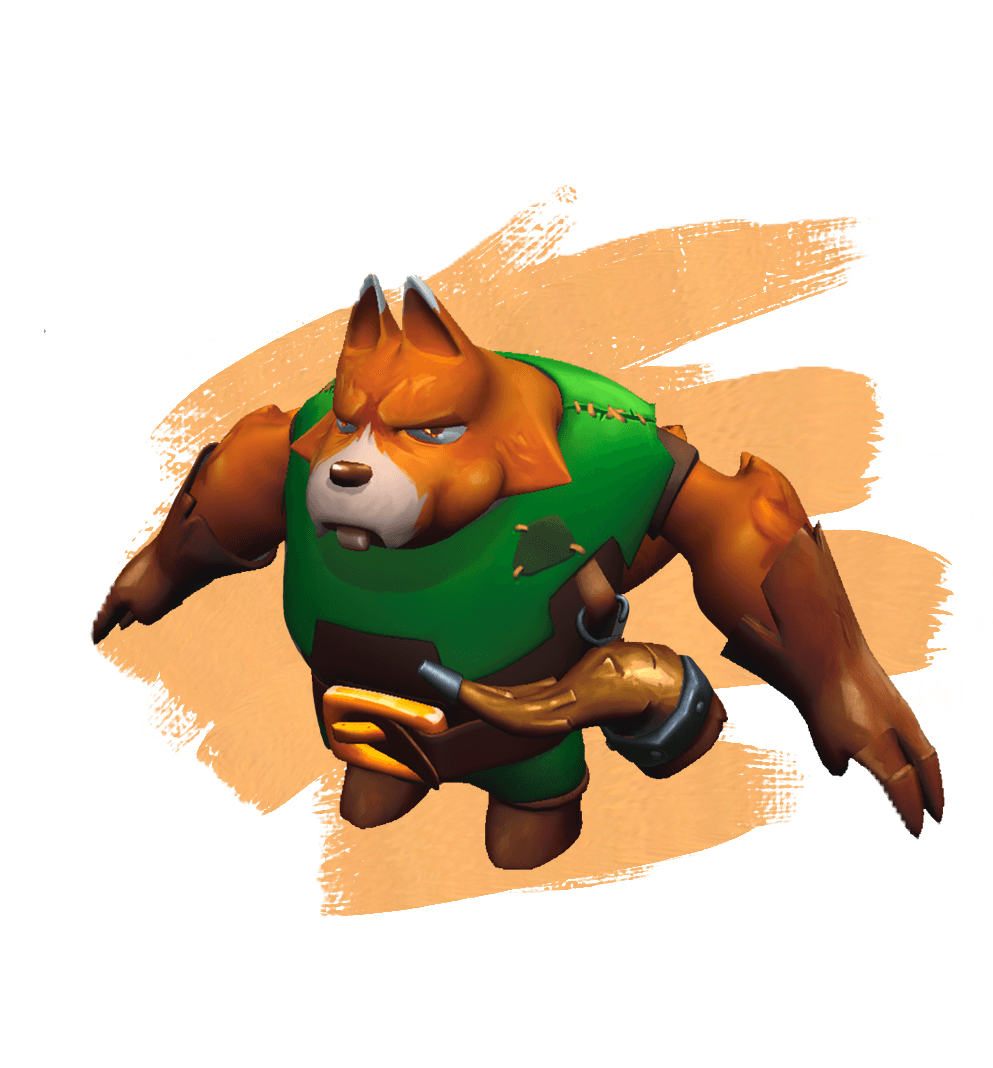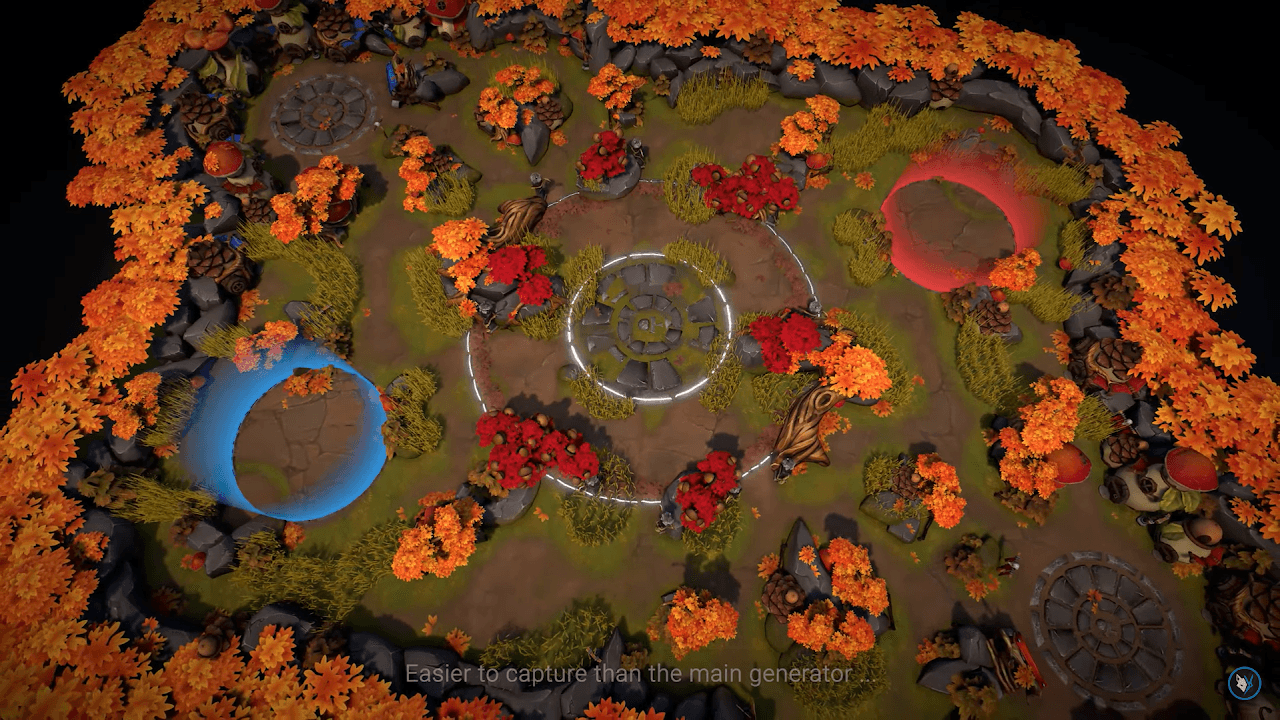Esquirrel
2v2 MOBA capture the flag that challenges players with strategic ambushes and tactical point control, designed under tight constraints.
Introduction
At the heart of Esquirrel is its 'Capture the Point' game mode, where teams compete to control a main generator and two smaller "Relai" points. The main generator gradually earns victory points, while capturing the Relai points grants gold, which automatically converts into additional points. Ambush tactics play a critical role in the gameplay. The main generator area, with its mix of bushes and open spaces, requires players to actively seek vision advantages before committing to an attack.
My Work
Lead Game Design & Vision:
Led the game design process, ensuring alignment with the desired player experience.
Proactively identified and proposed solutions for game design issues.
Organized the design team and delegated tasks.
Set priorities and areas of focus.
Continuously iterated on and improved the game concept.
Conception & Global Game Design:
Developed the core game concept and defined the desired player experience.
Explored various gameplay possibilities through iteration.
Collaborated with the entire team to evaluate all aspects of the game.
Assembled and refined game elements to enhance the overall fun factor.
Communication & Documentation:
Acted as the primary game designer responsible for documenting progress and team meetings.
Facilitated communication with other team members, including Game Art and Programming.
Fostered communication among all team members to coordinate project activities, meetings, and focus areas.
Combat System:
Designed the combat system, emphasizing player engagement.
Collaborated closely with the ability designer to create an optimal combat system.
Ensured smooth combat by defining key animation frames in collaboration with the animator.
Iterated on player flow in coordination with the level designer to create compelling combat experiences throughout the game.
Production & Management:
Established the production pipeline used for the project.
Directed the team toward an iterative pipeline for rapid game improvement.
Organized team meetings and addressed daily priorities and needs.
Playtest & Balancing:
Conducted ongoing game testing.
Iterated on in-game statistics and various factors to achieve game balance.
Provided support to the level designer and ability designer in balancing the game.
Assisted in organizing external playtests to collect valuable data for further refinement.
Conclusion
Working as the Lead Game Designer and Project Manager on Esquirrel was a deeply fulfilling experience. Despite the short timeline, we built a game that captured the excitement we aimed for, garnering positive feedback from players who enjoyed it in their free time and during our school’s Open Days. The iterative design process allowed us to continuously improve the gameplay and balance through regular playtests.
